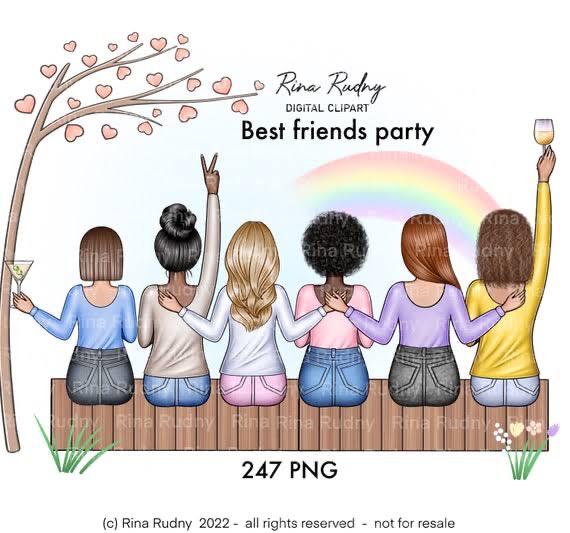Turning knowledgeable contacts into friends requires an approach that goes beyond professional topics, focusing on shared interests, mutual support, and gradually deepening personal connections. Here are some effective steps to make the transition:
Identify Shared Interests
Look for common hobbies, sports, books, or mutual acquaintances that provide natural points of connection. Shared interests build rapport and create a bridge beyond work-related conversations.

Show Genuine Interest in Their Lives
Ask about their lives beyond work: family, hobbies, or weekend plans. This helps show that you’re genuinely interested in them as a person, not just as a contact. A simple follow-up on something they mentioned previously—like a recent trip or event—can also make a big difference.
Suggest Casual Meetups
Propose meeting for coffee, a meal, or even a casual walk. Meeting outside of formal settings helps break down professional barriers and allows more natural, relaxed conversations.
Be Helpful and Supportive
Offer support or share valuable information if you come across something you know they’d appreciate. Whether it’s a helpful article, a podcast, or a suggestion related to their interests, sharing resources thoughtfully can strengthen your bond.
Show Vulnerability and Openness
Share a bit about your own life beyond work, allowing them to see a more personal side of you. This doesn’t mean over-sharing, but letting your guard down occasionally encourages a more reciprocal connection.

Keep Consistent but Natural Contact
Send a casual text or email now and then, just to check in. This could be a “How have you been?” message or sending something that reminded you of them. Regular, small gestures keep the connection warm without feeling forced.
Be Patient and Respect Their Boundaries
Not every contact will turn into a friend. Some people may prefer to keep things professional, and that’s okay. Building a friendship takes time and patience—don’t rush it.

Involve Them in Social Settings
If the timing is right, invite them to a group gathering or event where they might meet others with similar interests. This eases any pressure of one-on-one and lets your contact see you in a more social context.
gradually shifting the focus from purely work-related interactions to more personal, genuine exchanges, you’ll increase the chances of converting these contacts into real friends.
Find Common Ground
Identify shared interests or values. Whether it’s a hobby, a favorite TV show, or similar work challenges, finding mutual topics makes the conversation enjoyable and relatable.
Participate in shared activities. If they’re into something like hiking, reading, or even attending specific events, consider joining them. Shared experiences help bond people and provide memories to reflect on together.

Engage Outside of Professional Contexts
Plan informal meet-ups. Invite them for coffee, lunch, or an event, aiming for a relaxed setting. This casual environment helps people open up beyond formal interactions.
Use social media thoughtfully. Interact with their non-work posts, comment, and show interest. Just make sure not to overdo it—authenticity is key!
Show Vulnerability and Share Personal Experiences
Open up a little. Share your own stories, challenges, and aspirations in a natural way, so they feel comfortable reciprocating. Vulnerability creates a stronger emotional connection.
Support them during tough times. If they mention a personal struggle, offer a listening ear or a simple gesture of support. Friendships grow deeper when people support each other emotionally.

Be Consistent and Patient
Follow up periodically. Send a quick message or suggest a catch-up now and then, showing you genuinely want to stay connected.
Respect their pace. Some people may take longer to transition from contacts to friends. Let the relationship grow at a natural pace without forcing it.
Show Appreciation
Acknowledge them. Compliment their strengths, or thank them for any help they’ve provided in the past. Genuine appreciation fosters warmth and helps solidify a deeper bond.
Good friends are good for you.
“Good friends bring so many colors of happiness in your life by relieving stress, giving comfort, and removing loneliness,” says Amber O’Brien, PsyD, a psychologist with the Mango Clinic in Miami.
Healthy friendships are also linked to better cardiovascular health, lower blood pressure, less depression, and a longer life. So it never hurts to try to make new friends.

How to Start a Friendship
Friendships take time, but you can take steps to spark a relationship and nurture a connection.
Say yes. When you’re invited to a gathering or event, accept the invitation. Return the favor by inviting them somewhere. Extend your own invitations and ask a friend or acquaintance to get coffee or lunch.
Take the initiative. “You don’t need to wait for anyone to reach out to you and take the first step. Instead, become the kind initiator, even if you’re an introvert,” O’Brien says.
Start the conversation. When you’re with someone you’d like to know better, start a conversation. “Share something about yourself,” O’Brien says. “Likewise, let them share about themselves.”
Show interest. Even if you’re just meeting someone, you can make them feel comfortable by asking the right questions and being a good listener. Ask open-ended questions. Encourage them to open up by saying things like, “Tell me more.”
Smile. Make eye contact and smile. “Smiling while keeping good eye contact will create a positive effect on the other person,” O’Brien says. They’ll feel more comfortable and interested in the conversation.
Share. As you get to know each other, try sharing small but more personal things about yourself. “If you’re open with them, it gives them permission to be open with you,” Grossman says. But don’t go overboard. Take it one step at a time.

Build Professional Friendships
My relationship with each of these people is evolving and I believe I will continue to find ways of engaging, working and collaborating with them. I respect and like them, have learned from them, and consciously thought about ways I could deepen my relationship with each of them.
Does that make me opportunistic? Not unless I am not giving as much as I am receiving. I prefer to think that I maximize personal connections in ways that help both of us. Intentional, thoughtful interaction leads to productive, innovative, and fulfilling relationships that are more like professional friendships than professional relationships.
I’ve met people who feel that to be successful and safe, you should erect and maintain a wall between your personal life and your work life. In my experience, there is no right or wrong and the beauty of maximizing your connections is that you are in the driver’s seat. You and only you, can determine how much you share about yourself with anyone you meet, regardless of the context or pretenses under which you meet them.

Ways to Encourage Teams to Form Deeper Relationships
Create fun and off beat opportunities for groups to share information about themselves.
Take the time to participate in after-hours group chats. They can be purpose driven or a mixture of shop talk and fun stuff.
Engage team members in contests that require them to share their thoughts to purposely draw them out of their shell and encourage group participation.
Take the time to check in on individual team members virtually, by phone, email or snail mail.
Start meetings by asking each participant to tell the group about one good thing that has happened to them in the past 24 hours — responses may run the gamut, but the exercise will create levity — humor is always a great icebreaker and social lubricant.
https://www.linkedin.com/in/satish-kakri-17224417/
https://nimblefoundation.org/
nimblefoundation.org/our-clients.html
Thanks for reading.
